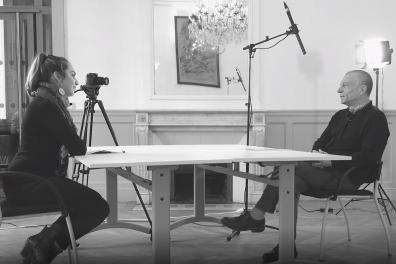Meet Michel Vieillard-Baron, specialist in poetry (waka) and poetics of classical Japan (IFRAE)

The "Portraits of Researchers in Area Studies" (PEA) is a series of large-format interviews produced by Inalco as part of the Digital Paris Research School of Area Studies (D-PaRSAS) institutional project. Deposited on the MediHal open archive, this series of portraits joins a set of collections on the Language and Cultural Area Studies (LaCAS) platform. These collections aim to build up a living, freely accessible scientific heritage of research on the world's languages, societies and cultures.
Large-format portrait
Video: Meeting Michel Vieillard-Baron, specialist in poetry (waka) and poetics of classical Japan (IFRAE)
An interview conducted by Sarah Gimenez, young researcher (CERMOM) and Digital Humanities engineer (Direction de la Recherche, de la Valorisation et des Etudes doctorales, Inalco), directed by Alexandre Galitzine, produced by Inalco ( 07/12/2021, 53 mn).
Podcast: Poetry (waka) and poetics of classical Japan. An interview with Michel Vieillard-Baron

Michel Vieillard-Baron is University Professor at Inalco, Department of Japanese Studies, and attached to the French Institute for Research on East Asia - IFRAE (Inalco-Université Paris Cité-CNRS). He is a specialist in classical Japanese literature, and in particular in the poetic genre known as waka, fixed-form poetry in the vernacular.
His research focuses on the aesthetics of waka, its uses and the relationship between imperial power and poetry.
He recently published a complete translation of the first imperial anthology of Japanese poetry, compiled around 905, Kokin waka shû, Recueil de poèmes japonais d'hier et d'aujourd'hui, Les Belles Lettres, 2022.
He is also involved in the long-term scientific research program on the translation of the Genji monogatari (Roman of Genji) (IFRAE: Axe I - Les langues, les sources et leurs enjeux).